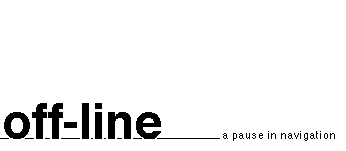 |
 |
March, 1999 |
 |
 |
March, 1999 |
| Giancarlo Livraghi gian@gandalf.it |
|
| |
||||
|
Since the beginning of modern industrial technology, two centuries ago, literature (not only science fiction) has been painting all sorts of catastrophic scenarios. Machines, they imagine, will take over and reduce us in slavery. To this day, we can feel the echo of those ideas in opinions and attitudes that reflect an irrational fear of any form of technology. But I think the problems we are facing are quite different. We haven’t seen, and it’s unlikely that we shall ever see, “intelligent” self-replicating machines running the world and reducing human beings to cattle. What’s making our life difficult is not the intelligence of machines. It’s quite the contrary. Machines are essentially stupid – and more and more complicated. Often complexity makes them less reliable, maintenance and repairs are more difficult. One doesn’t need to use a computer to run every day into a mess caused by some poorly conceived, or badly applied, technology. Are the machines to be blamed? I don’t think so. The cause of problems is always human error. Machines carry out repetitive pre-defined tasks. If they don’t do it properly the blame is on whoever designs them badly, uses them in the wrong way or sells them promising things that they can’t do. What does this have to do, someone could ask, with doing business in the net or generally being online? A lot, I think. Because we have fallen into a trap and we should get out of it. We should not expect the impossible from technology. We should not use tools and systems just because they are available (or in fashion) but choose and tailor them to our company's strategies and objectives. This is so obvious that it sounds silly to even say it; but if we look at the way technologies are chosen and used we see this unbelievable upside-down approach, where tools prevail on objectives and content, mechanical routines take priority over human needs. The results would be quite funny if they weren't disastrous. I am pleased to quote once again one of the best writers on this subject. This is what Gerry McGovern said in his Cash Registers article on February 15, 1999.
In other words: the tail is wagging the dog. The problems that we face every day in defining online strategies would be solved much more easily if we started from the head instead of the tail. But that needs patience – and use of a precious resource that no technology can replace: gray matter.
|
||||